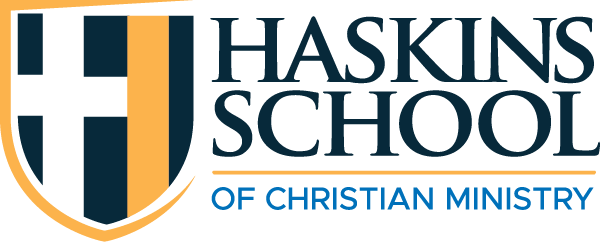The Robert Haskins Story
Robert Haskins and the Robert Haskins School of Christian Ministry
I grew up in a country home in southeast Oklahoma where neighbors were very few and lived a mile or more apart. The area was not very strong for getting an education and many students never completed high school. Many of the older pastors were skeptical of a seminary education. I became a Christian in 1954 right after high school graduation. I felt called preach one year later. I had my sights set on being a mechanical engineer. Since I was so shy, I could not understand God’s calling me to ministry, but I wanted to obey so I said, “Yes” to the pastoral ministry.
Several older preachers said, “Don’t go to the seminary. It will ruin you.” My parents had taught me the value of receiving the best education possible, so I ignored the older preacher’s advice and completed college and seminary; graduating from Oklahoma Baptist University with a B.A. and Southwestern Baptist Theological Seminary with a Masters in Theology and the D. Min degree from Golden Gate Seminary.
While pastoring Knob Hill Baptist Church in Oklahoma City, I was asked by the Baptist General Convention of Oklahoma to come to the convention and become an associate in the Missions Department as Director of Language Missions (ethnics). I worked with the Choctaw Baptist churches while serving as pastor of First Baptist Church, Talihina; falling in love with them, and they with me. I prayed about the invitation and in January 1970 I became the language director for Oklahoma Baptist.
As the ethnic pastors became acquainted with me they began to ask, “How do I develop and prepare a sermon? How do I help grow a strong Sunday School? How do I conduct the Lord’s Supper or a wedding?”
They received very limited formal training, if any, but had a great need for it. I soon realized that the churches would not get any stronger unless the pastors received some help. I began to develop a loose leaf notebook of “how to” helps for the pastor. It was soon recognized that bi-vocational pastors needed some of the same help. The notebook was prepared by the BGCO and was given to new and beginning pastors along with a small library containing a two volume commentary set, Haley’s Bible Handbook, Young’s Analytical Concordance, etc. to ethnic and bi-vocational pastors through the associational Directors of Missions.
We also began one and two week training schools for pastors that were held at Camp Hudgens, Seminole Nation Indian Baptist Church, Clinton Indian Baptist Church, Muscogee Seminole Wichita Baptist Association, Choctaw Association, and Cherokee Association.
I also dreamed of a mobile library with special books for pastors that would travel monthly to the most needed regions. I even approached the Home Mission Board about helping us, but we could not come up with the resources to make it possible.
When Dr. Jordan became the Executive Director for the Baptist General Convention in 1996, he came with an interest in helping develop our ethnic churches and pastors. He realized the need, and began trying to resource the need. When I retired in the year 2000, at my retirement banquet at Village Baptist Church, Dr. Jordan announced that the Baptist General Convention of Oklahoma would begin the Robert Haskins School. I felt very undeserving but very honored because I saw the need, had the dream, but could never completely pull it together with the resources. Dr. Jordan has done that. I am humbled and grateful, because I see a great need in ethnic America for strengthening the flow of the Gospel to the nations.
I say to all the students—become as prepared as you can because God can use a prepared, trained person in ways he cannot use the untrained who have no desire to better equip themselves for the greatest work in the world, Kingdom work!
